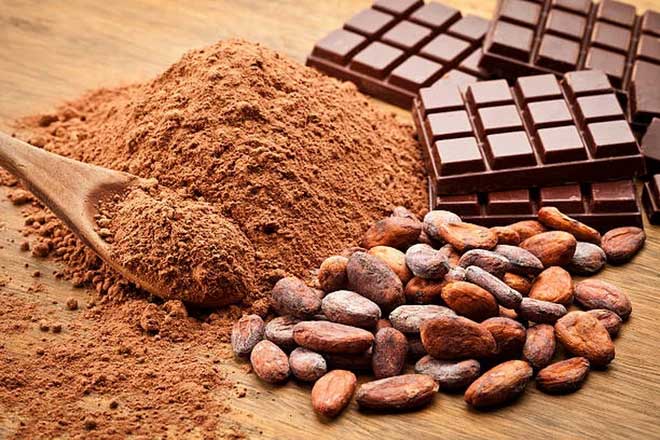For elderly individuals with a low or unhealthy diet, incorporating cocoa into their daily meals may help reduce the risk of developing Alzheimer’s disease.
A recent clinical trial in the United States demonstrated that elderly participants who consumed cocoa-containing supplements daily for two years showed certain improvements in cognitive function.

The new study suggests that daily supplementation with cocoa extracts can enhance cognitive function in seniors. (Image: Getty).
The research also indicated that the benefits of cocoa were particularly evident in individuals with unhealthy eating habits.
Dr. Chirag Vyas from the Psychiatry Department at Massachusetts General Hospital (Boston, USA) stated: “The results of the trial show that daily supplementation with flavanol-rich cocoa (a compound that acts as an antioxidant) will enhance cognitive function in elderly individuals with poor dietary habits.”
Benefits of Cocoa for Individuals with Low Nutritional Intake
The study involved 573 elderly participants (both male and female) with an average age of 70. They were randomly assigned to either consume cocoa extract or a placebo regularly over two years. Eleven percent of the participants reported eating chocolate daily before the trial began.
The group assigned to the cocoa supplement consumed two capsules daily, totaling 500mg of cocoa flavanols, including 80mg of epicatechin.
Flavanols (flavan-3-ols) are a subclass of plant compounds known as flavonoids. These nutrients can be found in tea, cocoa products, grapes, apples, and berries.
Participants took a cognitive test after joining the study, and after two years, 492 out of 573 completed the same test again.

Cocoa is rich in antioxidant flavanols. (Image: iStock).
The researchers analyzed the data from all participants and concluded that cocoa extract supplementation did not affect the overall cognitive function of the group.
However, for individuals with unscientific diets, there were “relatively better” changes in overall cognition and executive function when consuming cocoa products.
Executive function encompasses a set of cognitive skills necessary for self-regulation and behavior management.
While these studies demonstrate the potential cognitive benefits of cocoa in the elderly, researchers still do not fully endorse adding cocoa to everyone’s daily diet.
Vyas mentioned: “Nonetheless, our findings emphasize the importance of diet and nutritional status in future trials aimed at assessing the impact of cocoa extract supplementation on human cognition.”
He hopes to expand the scope of the trials to a more diverse population, especially focusing on those with poor dietary quality.
Dr. Thomas Holland from RUSH University (Chicago) revealed that in a 2020 study, he and colleagues assessed participants’ flavonoid intake by asking detailed questions about their diets, including foods high in flavonoids like kale, spinach, tomatoes, olive oil, beans, and tea.
The results showed that individuals who consumed foods high in flavonoids had a reduced risk of developing Alzheimer’s disease.
A Healthy Lifestyle is the “Key” to Maintaining Cognitive Function
Dr. Holland indicated that the cognitive benefits of cocoa for those with a healthy diet are not pronounced. This means that they do not need to supplement their daily diet with cocoa extract.
However, for individuals with inadequate or nutritionally deficient diets for any reason, cocoa products may provide essential nutrients they are lacking.

Cocoa products can provide essential nutrients for those with low nutritional intake. (Image: iStock)
It is important to note that any supplement should be taken under the advice of a doctor or nutritionist to ensure proper and effective use.
Dr. Holland stressed that “maintaining a healthy, varied, and nutritious diet is beneficial for brain health.” Dietary diversity is crucial, as each food contains different nutrients, including vitamins, minerals, and antioxidant flavonoids.
“For instance, a spring salad with arugula, spinach, onions, tomatoes, walnuts combined with raspberries or strawberries can contain 90-100 types of vitamins, minerals, and other bioactive compounds, including omega-3 and omega-6 fatty acids,” Dr. Holland noted.
However, Dr. Holland cautioned that memory loss in the elderly can be caused by multiple factors. To prevent this, it is essential not only to ensure a healthy diet but also to engage in regular physical activity, participate in brain-stimulating activities, get adequate sleep, and manage stress.


















































